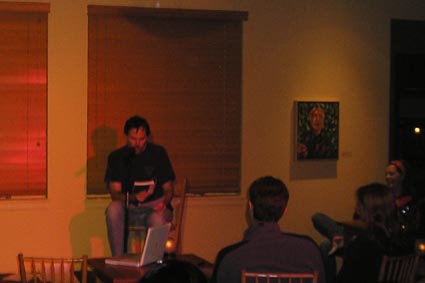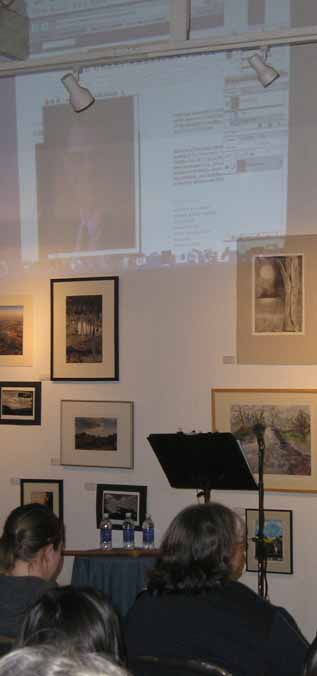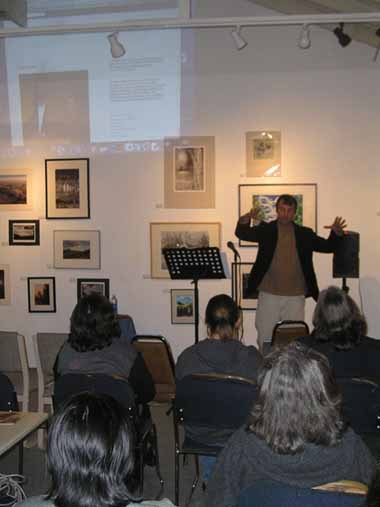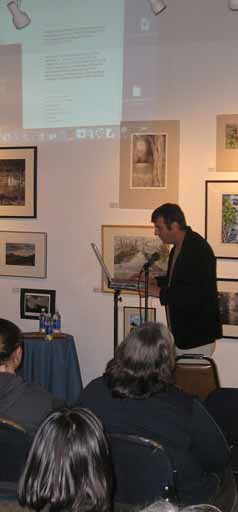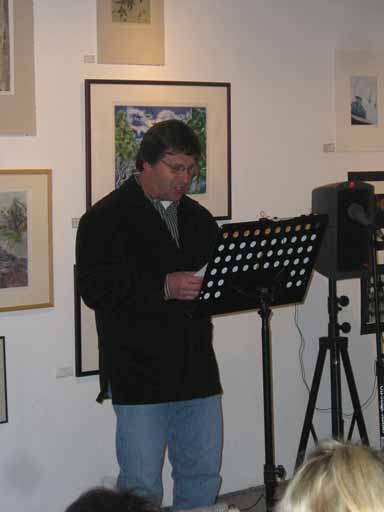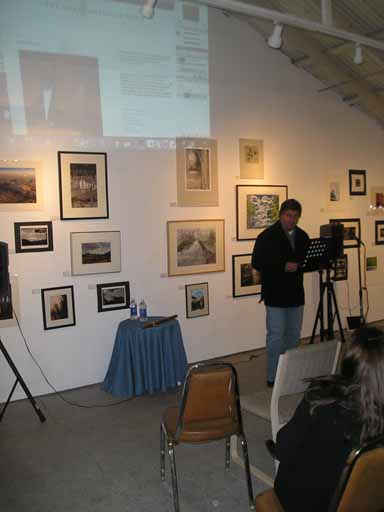I have been reading and re-reading Late for Work by David Tucker. The book is, in a sense, a collection of procrastinations, never-happened-but-what-if-it-hads, and nothing-has-happened-but-something-else-kind-of-dids. My intention was to review the book in its entirety a full two months ago. But the entropy of life has kept me staid. In reading and savoring Late for Work I think this indolence a fitting appreciation of Tucker’s “putting everything off” aesthetics.
While the humor in Tucker emerges from his musings on wasting time, the darker resonances come from matter-of-fact reports about how things happen: the breathy “oh” of a loved one, a boy forgetting the jacket he wore before taking a beating from his father, and the odd greenery the sick and dying call to mind for those in audience.
Tucker’s matter of fact tone and style enables him to handle memory and flashback with all the flare of a competent storyteller. But what I like most in Tucker’s voice is his understated, unsentimental sentiments. I’ve found myself thinking a lot about several of his poems, but in particular I found myself thinking about his poem, That Day.
Many of us have sick or dying parents—the last place we tend to reach for is our own sadness as that would make us self-indulgent and do a disservice to the parent we love. In That Day the poem moves the reader along an emotional arc that we all bank around when feeling our way through the long term illness of our loved ones.
In That Day the poem spends so much time lavishing in its “nothing day” that the reader falls prey to the same languor allowing the reader, perhaps, their own reverie of their own once-healthy mother to flood the plains of their imagination. The poem, so specific to the boy and his mother, makes vivid a defining moment and yet the details of the shortcut, the sack of groceries, even the flushed quail are common enough to trigger the repose that opens memory to its heart.
Of course such ravishings of memory must be undercut or we fall prey to the snickering of our own cynicism and here is the magic of Tucker: without falling prey to cynicism he finds a way through thickets of emotional snags without letting the poem or the reader slip over the edge into an unrestrained, undifferentiated mess. In That Day the poem slides the mother’s illness into the reverie—slides the future into the past.
Here is the poem…
That Day
It happened long ago.
--“Encounter,” Czselaw Milosz
Walking back from town they somehow missed
the logging road that makes a shortcut to their house
and now they are vaguely lost – the mother and her son
on an evening near Christmas in 1960, but they know
the road is close by and that they’ll find it soon.
The mother sings some song we can’t quite hear anymore
as she carries a sack of groceries on one arm
while the boy wades around her. Kicking the dry leaves.
Halfway down a hill, a quail whirs up from a thicket,
the wingbeats fan the boy’s hair as he grips
his mother’s hand and turns to watch the bird disappear
into the woods. A calm nothing day. It happened long ago.
In a few years his mother will begin hearing voices,
first at night, then all day. She will be committed
to an asylum in Nashville and it will seem that nothing
can bring her back to ordinary life. Then, after twenty years
of doctors and drugs and nothing working, a calm will descend
slowly, as if on its own, and she will become her old self again,
only sharper, wittier—like one lost a long time who at last finds
the wide road home. But it’s all still far off as they walk
to the house and to supper on that evening in 1960,
the boy happy, the mother singing as they found their way
to a future they wouldn’t believe, even if I told them.
When I think of my own mother’s battles with her own illness over the last twenty years, on account of Tucker’s poem I’m afforded the invaluable luxury of returning to images of her from when I was in Kindergarten, she in her black and white horizontal striped sweater, her Jackie Kennedy hairdo, touchdown Jesus in the background as we walk across the mall of the university. Her holding my hand, and we are off to the dentist…a place I hate more than anywhere else in the world; a place I would only trust my mother to take me. Of course this is just one memory of her in her healthy vibrant youth—but it is a recollection that I would not have had if it were not somehow permitted me by the imaginative compass of the poem That Day by Tucker.
While not brave enough to write poems like Tucker myself, I find myself grateful that Tucker’s inimitable, simple, putterings and loafings held me still long enough to call forward what I otherwise might have set aside.
